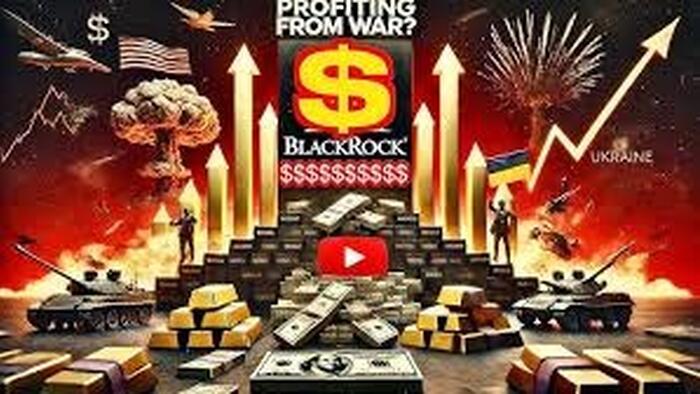The war in Ukraine has emerged as a significant flashpoint not only in international relations but also in the realm of big business, presenting a plethora of opportunities for corporations, particularly American financial institutions like JP Morgan and BlackRock. This conflict, while devastating for the Ukrainian populace, has opened avenues for lucrative reconstruction contracts, including military supplies and the revitalization of Ukraine’s extensively fertile agricultural lands. This context is aptly articulated by Robert F. Kennedy Jr., who underscores the economic dynamics at play. The involvement of these major financial institutions and consultancies like McKinsey & Company in Ukraine’s recovery reflects a paradigmatic shift in how we understand the intersection of war, economic opportunity, and corporate influence.
The formation of the Fund for the Development of Ukraine epitomizes this shift. This collaboration between JP Morgan, BlackRock, and McKinsey aims to assemble significant investments for Ukraine’s reconstruction efforts projected to cost somewhere between $400 billion and $1 trillion. The fund intends to utilize a “blended finance” approach to attract both public and private investments, focusing on priority sectors such as infrastructure, climate initiatives, and agriculture. Interestingly, JP Morgan and BlackRock have pledged their services pro bono to manage this fund, which is framed as a means to mobilize resources once the conflict subsides. However, early planning discussions at international level have raised eyebrows, considering the pre-emptive nature of these efforts amid ongoing hostilities.
What stands out is the glaring irony inherent in this initiative. The same companies implicated in creating the very instability that led to the war in Ukraine now present themselves as heroes of its reconstruction. This raises vital questions about the accountability and ethics of financial institutions that have historically profited from geopolitical turmoil. JP Morgan, for instance, has a lengthy track record of financing military operations and authoritarian regimes globally. BlackRock, as the world’s largest asset manager, holds substantial stakes in various defense companies that directly benefit from arms manufacturing in conflict situations, including the ongoing war in Ukraine. The juxtaposition of these roles creates a troubling narrative: entities that enable destruction now vie for the role of redeemer.
This problematic cycle transcends mere capitalism. It illustrates a systematic approach where Western financial powers decisively shape regions for their benefit post-conflict, undermining the very sovereign identities of affected nations. The reconstruction fund, instead of being a purely humanitarian endeavor, appears more as a strategic initiative designed to secure control over Ukraine’s future economic landscape. With a reconstruction effort amounting to almost a trillion dollars, companies like JP Morgan and BlackRock stand to gain significantly, further entrenching their influence over the nation’s critical infrastructure and resources.
Adding another layer of complexity, the involvement of McKinsey & Company stirs further skepticism. This consultancy has faced numerous criticisms for its questionable practices, often being associated with enabling corrupt regimes around the globe. The company’s reputation for lack of transparency and its controversial decision-making processes cast doubt on the integrity of the reconstruction initiative. Stakeholders might argue that the same corporations instrumental in the destabilization and eventual war will now wield significant power over Ukraine’s recovery and its future trajectory.
Ultimately, the situation in Ukraine serves as a poignant reminder of the precarious relationship between geopolitics and corporate interests. While reconstruction is undoubtedly essential for restoring the war-torn nation, it is crucial to remain vigilant against the underlying motivations of those leading these efforts. The intersection of war and commerce illuminates a deeper narrative that questions the integrity of institutions that have historically thrived on conflict. As the world observes the unfolding situation, there arises an urgent necessity to scrutinize who truly benefits from such initiatives and the potential ramifications for Ukraine’s sovereignty and economic independence in the long run.

